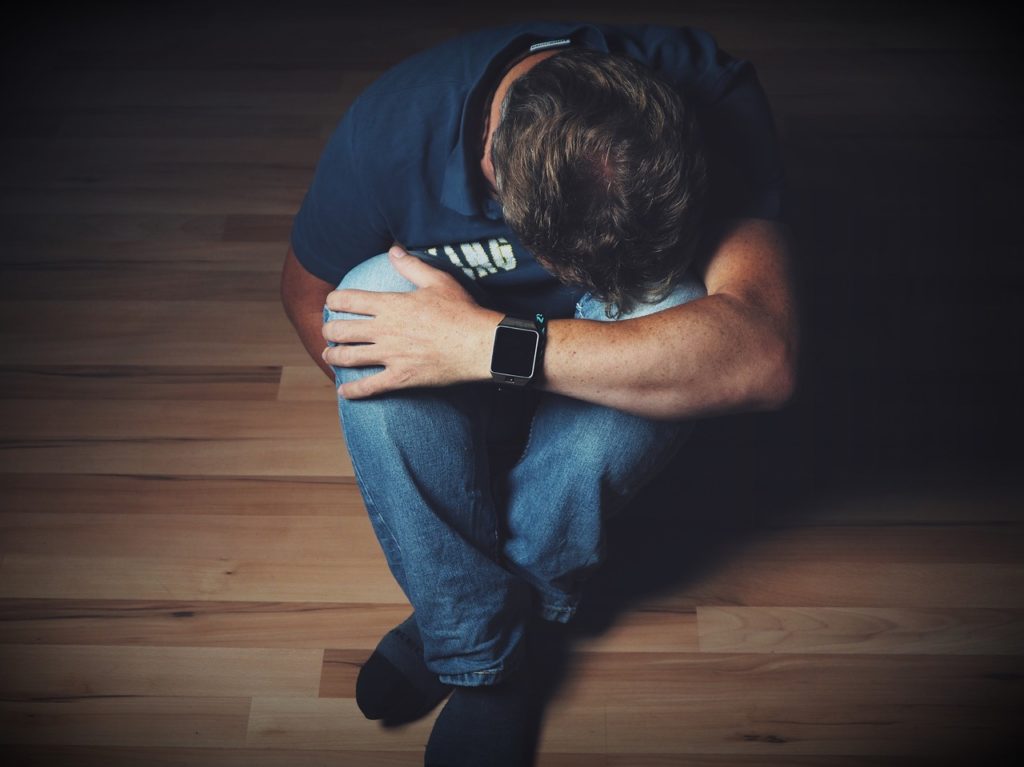- Calls to this hotline are currently being directed to Within Health or Eating Disorder Solutions
- Representatives are standing by 24/7 to help answer your questions
- All calls are confidential and HIPAA compliant
- There is no obligation or cost to call
- Eating Disorder Hope does not receive any commissions or fees dependent upon which provider you select
- Additional treatment providers are located on our directory or samhsa.gov
Processing Relationship Betrayals & Disappointments in ED Recovery

Betrayal in relationships is painful especially if you are in eating disorder recovery. Not only are you learning to let go of the disorder and learning to forgive yourself, but you are learning to forgive your partner for betrayals in the relationship.
Repairing
Working to repair the damage, rebuilding trust and reconnecting after a betrayal is possible, but both parties need to be willing to work on the relationship.
First, the partner that was unfaithful must cease to see or have contact with the person with whom they were having an affair. Stopping all forms of communication with the adulterer can help in recreating a sense of safety for the betrayed spouse [1].
Honesty is the best policy. In a study of couples who had affairs, researchers found that if the adulterous spouse shared all of the information requested by the betrayed partner, the couple felt emotionally better and were able to reconcile more fully [1].
Showing empathy to the betrayed partner is a key to surviving betrayal and disappointment. Regardless of how many times the issue comes up, it is essential to continue to talk about the emotions around the disappointment.
At the same time, to treat an eating disorder and betrayal, seek therapy to improve listening and communication skills for you and your partner. Treatment for each of you individually and as a couple can be very helpful for reconciliation.
Working in couples counseling can help both of you discuss disappointments, concerns, remorse, and sincere regret for the betrayal.
Feeling Betrayed
As the betrayed partner, it can feel like a loss to understand that your partner has let you down. If they are willing to work through the disappointment and anger with you, then you should ask a lot of questions about the betrayal to understand their reasons for cheating.

Set aside time to talk in your couple and individual counseling about how the affair has affected you. Share your disappointments, feelings, sadness, etc. and allow yourself to work through the pain and anger.
Reconnect with family and friends during this process. Get involved with other activities outside of your family and get involved in other groups.
Join a support group of other people who have worked through a betrayal. It can help to connect with others who have gone through similar situations.
If you feel like you can forgive and reconcile with your partner in time, do so. Forgiveness is essential even if you are unable to reconcile.
Being able to let go of your negative feelings when your partner has been forthright and taken steps to rebuild trust, can assist in reconciliation.
How it Correlates to Eating Disorder Treatment
Eating disorder treatment is partially about processing a betrayal and the disappointment around the loss of trust. When a deception occurs during the eating disorder, it can exacerbate the symptoms.

Disappointments are a part of life and learning to manage them is a part of the recovery journey.
The therapeutic process is about learning new life skills, coping methods, and identifying emotions and managing them. Learning new hobbies, distraction tools, and distress tolerance tools can help you deal with the stressors of the betrayal and of those that occur in everyday life.
Overwhelming stressors, like betrayal or affairs, are triggers for relapsing into eating disorder behaviors, but being able to work with your therapist on an ongoing basis can assist with preventing a setback from becoming a relapse.
How Do Eating Disorders Impact Relationships?
When non-eating disorder partners talk about the eating disorder and their relationship, they often feel disconnected from their partner [2]. Usually, in an eating disorder relationship, there is a disconnect, a lack of intimacy as eating disorder symptoms take hold.
For many sufferers, there is an intense preoccupation with weight, body shape and size, appearance, poor self-esteem, and self-worth [2]. Often these factors can decrease libido and sexual intimacy which increases the feeling of being disconnected.
For many couples, sharing a meal out or at home can be tricky as foods are restricted and eating in front of others becomes extremely difficult.
Conversations may start to revolve around the eating disorder, such as a partner’s weight, appearance, or qualities and less around the couple or family interests [2].
How Can Partners Help in the Eating Disorder Recovery Process
First, as a partner, it can help to gain understanding through the therapeutic process or group support. There are also national organizations such as the National Eating Disorder Association (NEDA) that offer educational information and online support for families and loved ones.
Second, obtaining individual therapy to help the non-eating disorder partner process their own emotions and journey through the eating disorder can be helpful. It is recommended to participate in couples counseling to process any disappointments or betrayal that is due to the eating disorder.
Third, let your partner know that you are in this with them. Remind them that you are with them through the recovery process and will support them. Your eating disorder partner needs you to stay motivated for recovery.

Libby currently works as a counselor at Fontbonne University and is an Adjunct Professor at Saint Louis University, and is a contributing author for Addiction Hope and Eating Disorder Hope. Libby lives in the St. Louis area with her husband and two daughters. She enjoys spending time with her family, running, and watching movies.
References:
[1] Harrar, S. (2017, October 26). Surviving Infidelity: 15 Steps to Reestablish Trust. Retrieved February 01, 2018, from https://www.rd.com/advice/relationships/15-steps-to-surviving-an-affair/[2] Action, C. P. (2016, February 12). Eating Disorders and Romantic Relationships. Retrieved February 04, 2018, from https://www.psychologytoday.com/blog/contemporary-psychoanalysis-in-action/201602/eating-disorders-and-romantic-relationships
The opinions and views of our guest contributors are shared to provide a broad perspective of eating disorders. These are not necessarily the views of Eating Disorder Hope, but an effort to offer discussion of various issues by different concerned individuals.
We at Eating Disorder Hope understand that eating disorders result from a combination of environmental and genetic factors. If you or a loved one are suffering from an eating disorder, please know that there is hope for you, and seek immediate professional help.
Published on March 27, 2018.
Published on EatingDisorderHope.com
